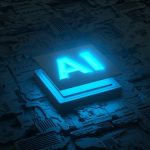Artificial Intelligence (AI) has been making waves in various sectors, and now it’s stirring things up in the world of professional learning and development (L&D). From personalized content to performance measurement, here are some insights on how AI is transforming professional training.
Customized Learning Experiences
Artificial Intelligence is breathing new life into professional training by enabling personalized learning experiences. Leveraging data from learners’ interactions, AI can model individual learning paths that cater to the unique needs of each employee.
A lire en complément : How can iot devices enhance personalized marketing strategies?
This is a far cry from the one-size-fits-all model of conventional training methods. With AI, content can be tailored to the learner’s pace, preferred learning style, or even topics they struggle with. The result is a more effective and engaging learning experience.
Adopting this approach can also save time, as employees spend less time on areas where they are already proficient and focus on developing skills where they need improvement.
Lire également : How will artificial intelligence transform traditional banking?
Real-Time Feedback and Performance Assessment
AI’s capabilities extend beyond just content delivery. It can also provide real-time feedback, allowing employees to understand their strengths and weaknesses and adjust their learning strategies accordingly.
Intelligent tutoring systems, for instance, can offer instant feedback on learners’ performance, just as a human tutor would. These systems can identify where employees are struggling, provide remedial instruction, and even adapt future learning content based on past performance.
Moreover, AI can assess employees’ skills beyond just tests and quizzes. It can analyze data from practical exercises, simulations, and even online discussions to provide a more holistic view of an employee’s skills and knowledge.
Enhancing Employee Engagement
AI can also boost employee engagement in L&D initiatives through gamification, virtual reality (VR), and augmented reality (AR). These immersive technologies, powered by AI, can make learning more enjoyable and engaging, increasing employees’ motivation to participate actively in training programs.
AI can also help create a social learning environment by recommending relevant resources or connecting learners with peers who can help them. This not only fosters a sense of community among employees but also enhances learning through knowledge sharing and peer-to-peer interaction.
Predictive Analysis for L&D Strategy
AI’s ability to analyze vast amounts of data can also inform L&D strategy at an organizational level. Through predictive analysis, AI can identify trends and patterns in learning data, enabling L&D leaders to make data-driven decisions about future training needs.
For example, AI can forecast which skills will be in demand in the future, allowing organizations to prioritize them in their L&D initiatives. AI can also predict which training methods are most effective for different groups of employees, enabling the creation of more targeted and effective learning programs.
Streamlining Administrative Tasks
Last but not least, AI can automate mundane administrative tasks associated with L&D, freeing up time for training professionals to focus on more strategic tasks.
For instance, AI can automate the scheduling of training sessions, tracking of employees’ progress, and even the grading of assignments. AI can also help with the selection and procurement of learning resources, ensuring that only high-quality and relevant content is used in training programs.
In conclusion, AI offers vast potential for enhancing professional training and development. By enabling personalized learning, real-time feedback, enhanced engagement, data-driven decision-making, and streamlined administration, AI is poised to revolutionize the way we approach L&D.
Indeed, the rise of AI in professional training and development reflects a broader shift towards a more data-driven, personalized, and efficient approach to learning. As AI continues to evolve, it will undoubtedly continue to shape the future of L&D in ways we can only begin to imagine.
Leveraging Natural Language Processing in Corporate Training
Artificial Intelligence, particularly a subset known as Natural Language Processing (NLP), is revolutionizing the way corporate training is conducted. NLP, which focuses on the interaction between humans and computers through natural language, enhances the learning experience in multiple ways.
Primarily, NLP enhances the communication between the training platform and the learner. Machines can understand, interpret, and respond to human language, making the learning process more interactive and engaging. Rather than clicking through slides or reading text, learners can ask questions or express concerns in their own words and receive instant, personalized responses.
Additionally, NLP can be used to analyze open-ended responses or discussion posts in online training programs. It can identify common themes or sentiments, providing insights into employees’ understanding of the content and their attitudes towards the training. This allows L&D professionals to fine-tune the training materials and methods based on these insights.
Using NLP, AI can also cater to different learning styles by converting text to speech or vice versa. For instance, auditory learners can listen to the content, while visual learners can read it. This ensures that the training is accessible to all employees, regardless of their preferred learning style.
Addressing Skill Gaps through AI-Powered Employee Development
Artificial intelligence plays a crucial role in identifying and addressing skill gaps, thereby enhancing employee development. It can analyze an individual’s performance data to pinpoint areas where improvement is needed, allowing for targeted skill development.
Besides, AI can suggest personalized learning paths to help employees bridge their skill gaps. These paths can include a mix of training modules, practical exercises, and supplementary resources, all tailored to the employee’s learning style and pace. This targeted approach to skill development ensures that the training is relevant and effective, leading to significant improvements in performance.
Moreover, AI can predict future skill gaps based on trends in the industry and changes in job roles. It enables organizations to proactively address these gaps, ensuring that their workforce remains competitive in the ever-evolving business landscape.
Furthermore, AI can facilitate peer learning, matching employees who have mastered certain skills with those who need help in those areas. This not only helps in skill development but also fosters collaboration and camaraderie among employees.
Conclusion
There is little doubt that artificial intelligence has emerged as a game-changer in the realm of professional training and development. It has transitioned the sector from a generic, one-size-fits-all approach to a more personalized, interactive, and efficient learning model.
From enabling personalized learning experiences and providing real-time feedback to enhancing employee engagement and facilitating data-driven decision-making, AI has transformed every facet of L&D. It has made learning more accessible and engaging while also streamlining administrative tasks and making the whole process more efficient.
Moreover, innovative technologies such as NLP and machine learning are taking AI’s impact on L&D to new heights. They are enhancing communication, aiding in skill development, and providing deeper insights into employees’ learning processes.
The future looks promising for AI in professional training and development. As AI continues to evolve, it is set to further enrich the learning experience, making L&D more effective, engaging, and future-ready. The possibilities are endless, and we are just at the beginning of this exciting journey. For L&D professionals and learners alike, the rise of AI signals the dawn of a new era in professional learning.











